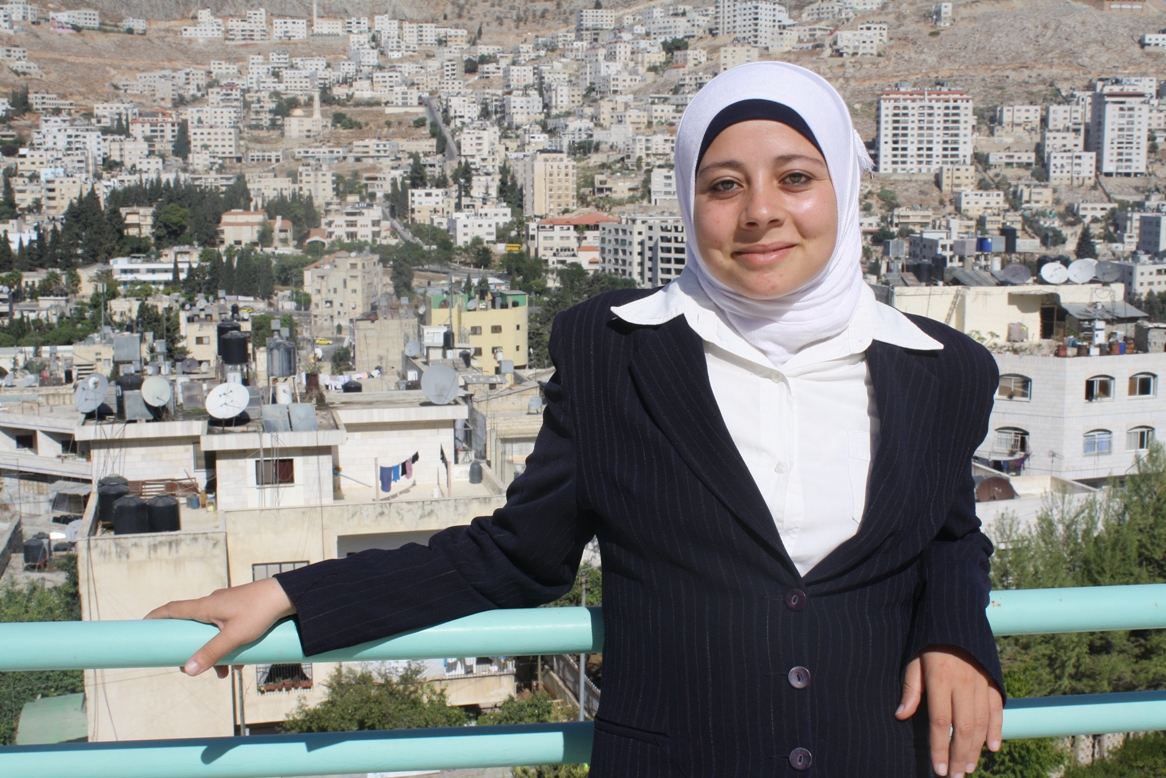FWEN Profile: Aya
Name: AyaAge: 22 years old Location: Beit Furik village, outside of Nablus Business Plan: Sheep Farm
How did you decide to participate in FWEN? What have you gained from the program?
At just 22 years old, Aya is the youngest participant in the FWEN program; in fact, when the program began, she was still a student at An-Najah University. (She graduated four months ago with a degree in sociology.) She heard about the FWEN program from TYO, where she is a volunteer. When she heard about the program, she knew it was for her – she saw it as “the start of her dream,” the first point to make her dream of owning her own farm a reality.
Growing up in a village and helping on her family’s small farm, Aya knew she loved animals and someday wanted to own her own farm. The only problem is that farming is a male-dominated profession in Palestine: Traditionally a man will own a farm, and the women in his family will assist him with the work. Aya describes how, before the FWEN training, people in her community would laugh at her, asking how she could possibly run a farm as a woman. She ignored the criticism and forged ahead, receiving encouragement from her family, who supported her plan. She has been to training sessions on farms where she was the only woman surrounded by men, but she is determined to succeed and enjoys challenging people to respect her and her project. Aya will be the first woman in Palestine to own and raise sheep.
Participating in the FWEN training sessions, she gained a concrete idea of how to achieve this dream. She learned how to form relationships with important people, and gained self-confidence. One of the highlights of her participation in FWEN was the opportunity to meet with Cherie Blair, who listened to her business proposal and encouraged her to continue with her plan.
What is your business plan?
Aya’s farm will be named “Solidarity Farm,” a symbol of the cooperation she hopes to encourage there. She will purchase sheep that are two and a half months old, and will raise them for four months before selling them to local butchers’ shops. She will also slaughter sheep directly on her farm and sell the meat to restaurants and hotels in Nablus. She has already started to form a network with local butchers, and even has contracts with several of them for local purchases.
In addition to her personal experience, her inspiration for running a farm also comes from what she has seen on TV about farms in Europe and the US. She would like to create a farm that is run in a scientific manner, using modern technology. She envisions a computer database that will register and track the animals, sanitary facilities for slaughter, and easy access to the farm for her clients.
What are your next steps? What help would you like to receive?
Aya has already received a plot of land from her father and has begun construction of the first barn where the sheep will be raised. As soon as start-up funding is available, she plans to purchase her first batch of 40 sheep. She will use the profits from her operations back into the business, gradually increasing the number of sheep on her farm. Her goal is to eventually have over 500 sheep.
What are your dreams for the future, and how will your business help you to achieve them?
Looking to the future, Aya hopes to employ many men and women, and to continue using new ideas and techniques on her farm. She would like to import sheep from abroad (from Holland or Australia) and to open new branches of the farm in other areas of Palestine. She also hopes to become a financially and socially independent woman and to inspire other women to create their own businesses. On a personal level, Aya hopes to return to the university and get a Master’s degree in sociology and economics.


